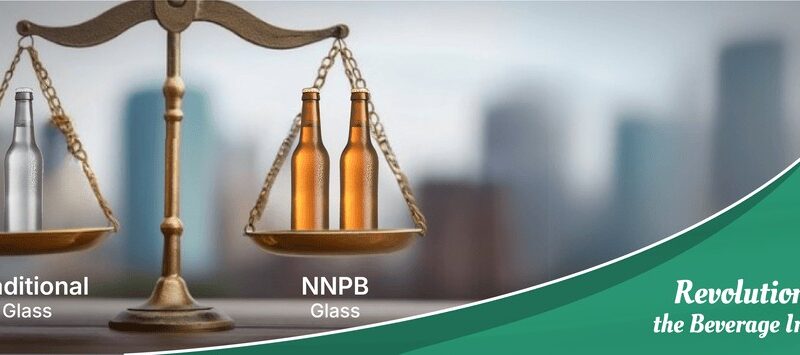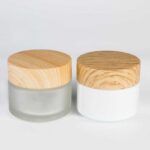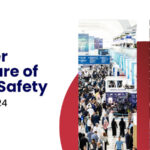Revolutionizing the Beverage Industry: How Lightweight Glass Bottles Balance Innovation, Cost, and Consumer Expectations
The beverage industry is evolving rapidly, pushing packaging manufacturers to create sustainable, cost-effective, and consumer-friendly solutions that align with market demand. Lightweight glass bottles, especially eco-friendly options, have become a key answer to these challenges. Combining functionality with sustainability, lightweight glass beverage bottles offer the perfect solution for brands aiming to balance innovation, cost, and the evolving expectations of environmentally-conscious consumers.
Why Lightweight Glass Bottles Are the Need of the Hour
Today’s beverage industry is facing the rising cost of raw materials, stringent environmental regulations, and a shift in consumer mindset toward ecological responsibility. While traditional glass beverage packaging is revered for its premium feel and excellent barrier properties, the weight of glass bottles for drinks has been critiqued for contributing to higher transportation costs and a larger carbon footprint.
Driven by global sustainability goals, industries are exploring ways to reduce waste and energy consumption. Glass beverage bottle suppliers have responded with lighter yet equally effective packaging solutions. Lightweight glass bottles and jars address these challenges by reducing material usage without compromising durability or aesthetic appeal. Additionally, recyclable glass bottles are gaining attention for their sustainability benefits.
What Makes Lightweight Glass Bottles a Game-Changer?
Lightweight glass bottles are more than just a reduced, lighter version of their traditional counterparts; they represent a significant step forward in material science and design. By leveraging advanced manufacturing techniques such as precision molding and optimized annealing processes, lightweight glass beverage bottles achieve the perfect balance of reduced weight and structural integrity. This innovation benefits beverage companies by helping them:
• Contribute to Sustainability: Reduced material usage translates to lower energy consumption during production, while the lighter weight of glass bottles for drinks reduces transportation emissions. Additionally, the eco-friendly nature of recyclable glass bottles supports a circular economy.
• Cut Costs: Less material means reduced raw material costs and improved logistics efficiency.
• Retain the Premium Look: The clarity, recyclability, and tactile quality of premium glass beverage bottles remain uncompromised, meeting consumer expectations for premium packaging.
The Innovation and Science Behind Lightweight Glass Bottles
The development of lightweight glass beverage bottles involves intricate advancements in glass formulation and engineering. Key innovations include:
• Material Optimization: High-strength glass formulations enable thinner walls without compromising performance, making custom glass beverage bottles ideal for packaging beverages such as milk bottles, juice bottles, and water bottles.
• Precision Molding: Advanced molds create lightweight glass bottles with uniform thickness and enhanced durability.
• Strengthening Techniques: Chemical tempering and specialized coatings improve the impact resistance and longevity of glass bottles for drinks.
These scientific breakthroughs ensure that lightweight glass beverage bottles meet the rigorous demands of packaging beverages, from carbonated drinks to fine wines.
What Is Lightweight Glass Known As?
In the industry, lightweight glass beverage bottles are often referred to as narrow neck press and blow (NNPB) glass. This term highlights the advanced manufacturing process of creating lighter, more uniform glass containers. NNPB technology ensures that thinner glass maintains the same strength and durability as traditional glass. The term “lightweight container glass” is used to describe these innovative products that balance reduced weight with high performance. Specific branded technologies may also exist, with names varying based on manufacturers and proprietary processes, further underlining the technological importance of lightweight glass bottles in the glass beverage packaging industry.
Key Gains for the Glass Beverage Bottle Industry
Lightweight glass beverage bottles have significantly impacted the industry in multiple ways. Here are the top four advantages this technological advancement offers:
1. Environmental Benefits: Lighter bottles reduce the carbon footprint, aligning with sustainability goals and reducing greenhouse gas emissions. This makes eco-friendly glass bottles a more sustainable packaging solution.
2. Cost Efficiency: Reduced material usage and lower transportation costs lead to financial savings for manufacturers and brands.
3. Consumer Appeal: Premium glass beverage bottles offer the same premium feel as traditional glass, retaining customer appeal while being more sustainable.
4. Scalability: Custom glass beverage bottles can be created in various shapes and sizes, catering to diverse product needs and offering a wide range of glass beverage bottles for drinks.
Adoption Trends in the Beverage Industry
Emerging trends in the market are accelerating the adoption of lightweight glass beverage bottles as the material of choice for beverage packaging:
• Premiumization with Sustainability: Brands are positioning lightweight glass beverage bottles as a premium yet eco-conscious choice, appealing to premium beverage brands.
• Collaborations and Innovations: Partnerships between beverage companies, packaging suppliers, and innovators are driving the development of bespoke lightweight solutions.
• Global Adoption: Beverage companies worldwide, from small craft brewers to large beverage brands, are embracing lightweight glass beverage bottles.
• Recycling Integration: Lightweight glass beverage bottles are compatible with existing recycling systems, enhancing their appeal in circular economy models and making them 100% recyclable.
Conclusion
Lightweight glass beverage bottles are not just a trend but a transformative force in the beverage industry. By addressing the critical shortcomings of traditional glass, such as weight and fragility, this innovative packaging solution is setting new standards for excellence. As adoption accelerates, lightweight glass bottles are poised to redefine the future of glass beverage bottles, proving that less can indeed be more.
Nitin Chaudhary
.



